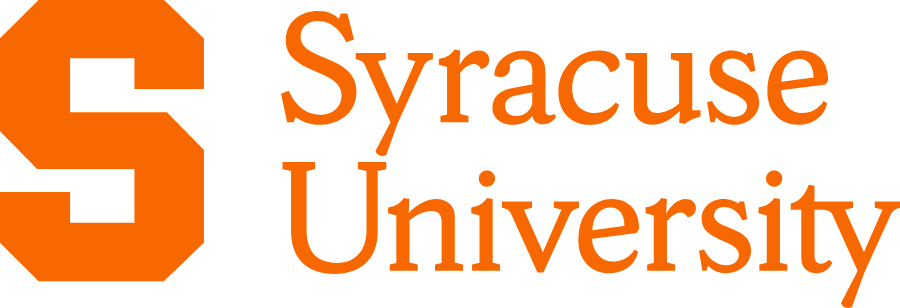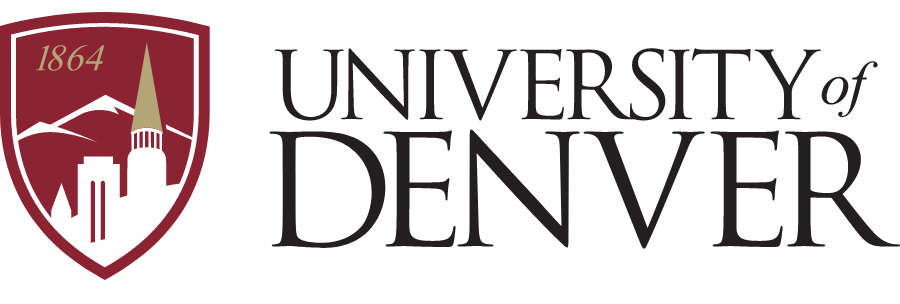Like every state in America, the requirements for becoming a librarian in the state of Nevada vary in some ways and remain the same in others. The position of librarian is a varied role within itself – any time you are assisting students or the public, you are bound to find yourself handling all sorts of requests and tasks. It is a highly flexible position because librarians must be willing to “bend and flex” to meet their unique communities’ specific needs.
In order to become a librarian in Nevada, whether you want to work in public libraries, K-12 school libraries, or academic libraries, there are specific requirements you must meet in order to qualify for these roles. Nevada institutions such as the Nevada Department of Education and Nevada State Library, Archives & Public Records set such requirements in place to ensure Nevada citizens are receiving professional, top-notch library services from their state’s librarians.
Most notably, Nevada’s K-12 school librarian requirements and public service librarian requirements are more unique than other states. While academic librarianship is largely the same, people considering librarianship in Nevada’s school systems or public libraries should pay close attention to specific requirements before applying.
Featured MLIS Programs
ADVERTISEMENT
Syracuse University
Master of Science in Library and Information Science Online
Syracuse University offers an online MS in Library and Information Science. The program can be completed in 18 months and includes the option to specialize in School Media or customize the program to align with your professional goals. No GRE is required.*
University of Denver
Master of Library and Information Science Online
University of Denver’s Morgridge College of Education offers an online, ALA-accredited Master of Library and Information Science program. Learn from practitioners and gain the service-based skills needed to connect communities with information in the digital age. No GRE is required.*
St. John’s University
Online Master of Science in Library and Information Science
Gain the advanced expertise that information specialist positions require with the online M.S. in Library and Information Science program from St. John’s University. Achieve your career goal by selecting from one of the following specializations:
Arizona State University
M.Ed in Learning Design and Technologies
Create literacy programs and curricula that fully incorporate digital technology and include themes of social justice.
What are the basic educational requirements for future librarians in Nevada?
Like many other states, the basic foundational requirements for becoming a librarian in the state of Nevada include a couple predictable expectations:
- A completed undergraduate degree in any subject area, and
- A completed Master of Library and Information Science (MLIS) degree, preferably from an American Library Association (ALA)-accredited program (though this isn’t always a firm requirement; many institutions will consider a non-ALA-accredited MLIS degree, though the ALA accredited degree is typically listed as a preferred qualification).
These basic requirements aren’t new – if you’ve researched librarianship in any other state, you are probably quite familiar with the MLIS degree. The ALA sets the national standard for excellence in libraries, which is why ALA-accredited degrees are often preferred. Colleges and universities with MLIS programs seek accreditation from the ALA because it serves as a common stamp of satisfactory educational standards within their coursework requirements. This is why all types of libraries – public service, K-12 school, and academic – often list ALA-accredited degrees as requirements on their librarian job postings. An ALA accreditation serves as a universal set of standards for strong, thriving libraries.
However, earning an MLIS degree is only one pathway to becoming a librarian in the state of Nevada. If you are considering entering K-12 school librarianship or public librarianship, you may be able to explore other job avenues for becoming a librarian that do not require an MLIS degree.
What is required to become a public service librarian in Nevada?
Like many other states, Nevada public libraries prefer their librarians to have graduated from an ALA-accredited MLIS program. While it isn’t always a firm requirement that your MLIS degree was earned from an ALA-accredited program, it is typical to see this listed as a preferred quality in a candidate.
However, there is a unique aspect of Nevada public librarianship that sets it apart from other states. Nevada State Library, Archives & Public Records also allow people to obtain a Public Librarian Certification if they do not hold an MLIS degree. To obtain this certification, a potential candidate must meet the following criteria:
- Submit a completed application accompanied by copies of academic transcripts and a letter of recommendation.
- Have a bachelor’s degree and at least 2 years of library experience; an associate’s degree and at least 4 years of library experience; or a high school diploma or GED and at least 7 years of library experience.
- Provide verification of required years of experience.
- Pass a criminal background check.
Also according to the Nevada State Library’s website, a potential candidate would also need to complete at least twenty-one semester hours of credit from an accredited college or university which includes three semester hours of instruction in each of the following subjects:
- Administration of a Library
- Bibliography and Reference
- Cataloging and Classification of Materials
- Technology in the Library
- Literature for Children and Young Adults
- Selection of Library Materials
- A course in the History and Organization of Libraries
This certification process exists for people without MLIS degrees to become librarians; degree holders would not need to complete this certification process to qualify for a librarian-level position in a Nevada public library.
Related to this requirement, consolidated library districts serving populations of 1,000,000+ people may establish specific educational qualifications of their executive directors, which may include, without limitation, holding a completed MLIS degree.
It is important to note that this Public Librarian Certification, unlike a completed MLIS degree, does not transfer out of the state of Nevada. For example, a person working as a librarian with a Public Librarian Certification in Nevada could not move to a different state and use the Public Librarian Certification from Nevada State Library, Archives & Public Records as a transferable qualification – it is only recognized in the state of Nevada. On the other hand, a completed MLIS degree would transfer state to state as an acceptable qualification, even if it was earned from a Nevada-based MLIS program.
Upon the completion of the Public Librarian Certification, a public service librarian in a role afforded to them because of this certification would need to keep it active. These certifications are set to expire every three years, and the following recertification requirements must be completed and submitted before the three-year expiration date of the certification:
- Earn three semester credits for courses of continuing education (CE) credits approved by the Library board of Trustees, or
- Complete 5 units of continuing education established by a continuing education division of the University of Nevada in Reno or Las Vegas, or
- Any combination of the first two choices
Failure to keep a Public Librarian Certification current could result in revocation of the certification.
What is required to become a K-12 school librarian in Nevada?
Like public librarianship in Nevada, Nevada K-12 school librarians also have some slight variations in their position requirements as well. While some of the requirements are standard, such as having a valid teaching license, the types of endorsements for school librarians (and the requirements for each) are different. Many school districts across the United States have a singular endorsement for school librarians or school media specialists. However, Nevada has two.
To become a K-12 school librarian in Nevada, the Nevada Department of Education outlines the requirements in Nevada Administrative Code 391.255, which are broken into the two subcategories of school librarian endorsements, “school library media specialist” or “professional school library media specialist”:
To become a school library media specialist, a candidate must…
- Have a valid secondary teaching license, excluding a business and industry endorsement,
- Have a valid elementary or special teaching license, a valid license to teach special education, or a valid license to teach middle school or junior high school education,
- Have completed a program for school library media specialists which has been approved by the Board or a regional accrediting association;
- Hold a master’s degree in library science, with specialization in school librarianship, from a school accredited by the American Library Association; or
- Have completed 21 semester hours of coursework in the following subjects:
- Organization and administration of a school library.
- The cataloging and classification of materials for a library.
- Reference, bibliography and information skills.
- The use and selection of educational media for a library.
- Children’s and young adults’ literature.
- Computers in the library.
- A supervised practicum in an elementary, middle, junior high or secondary school library.
To become a professional school library media specialist, a candidate must hold a master’s degree in any field, meet all the requirements listed above (and complete an additional nine semester hours in curriculum and instruction, educational and/or information technology), and have three years’ worth of experience in state-approved schools or accredited private schools as a librarian or school library media specialist.
Featured MLIS Programs
ADVERTISEMENT
Syracuse University
Master of Science in Library and Information Science Online
Syracuse University offers an online MS in Library and Information Science. The program can be completed in 18 months and includes the option to specialize in School Media or customize the program to align with your professional goals. No GRE is required.*
University of Denver
Master of Library and Information Science Online
University of Denver’s Morgridge College of Education offers an online, ALA-accredited Master of Library and Information Science program. Learn from practitioners and gain the service-based skills needed to connect communities with information in the digital age. No GRE is required.*
St. John’s University
Online Master of Science in Library and Information Science
Gain the advanced expertise that information specialist positions require with the online M.S. in Library and Information Science program from St. John’s University. Achieve your career goal by selecting from one of the following specializations:
Arizona State University
M.Ed in Learning Design and Technologies
Create literacy programs and curricula that fully incorporate digital technology and include themes of social justice.
What is required to become an academic librarian in Nevada?
Academic librarianship requirements in Nevada are quite similar to many other states across America…in the sense that the requirements vary greatly depending on the school or position!
Academic librarian position requirements tend to change from campus to campus. Most positions will require an MLIS degree (ALA-accreditation likely preferred), but certain academic libraries’ needs, communities, and structures may require additional certifications or education to qualify for them.
For example, academic libraries that serve a school of science within a larger college or university may require its librarians to also hold varying degrees in science, such as chemistry or biology. From there, requirements can become even more specific – for example, one college may require a master’s level degree in the specific subject field while others would allow an undergraduate degree to suffice.
Potential academic librarians can browse the Find-a-Library Directory to peruse various academic libraries across the state of Nevada. The directory includes information such as college and university websites, job posting boards, staff contacts, and more for various academic libraries.




